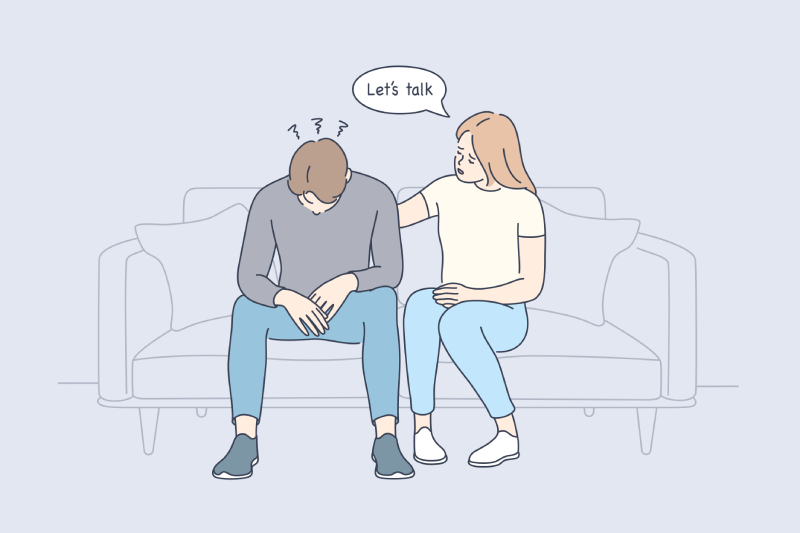Suicidal thoughts usually begin from a wish to die and develop as an intention to act and a plan to end one’s life. The evolution of these steps may occur immediately or over a period of time and precautions can be taken at each step. The best psychological counsellors recommend different psychosocial interventions for suicide prevention intended to help people learn new ways of dealing with stressful experiences, identify patterns of thinking, and practice alternative actions when thoughts of suicide arise. Some of the common psychotherapeutic measures adopted by the best therapist in India are:
Cognitive Behaviour Therapy which uses a risk-reduction, relapse-prevention approach that includes an analysis of risk factors and stressors leading up to and following the suicide attempt. This is followed by the development of a safety plan, skill building, and psycho-education. It includes family skill modules focused on family support and communication patterns as well as on improving the family’s problem-solving skills.
Dialectical Behaviour Therapy is a therapy for individuals at high risk for suicide and who may struggle with impulsivity and emotional regulation issues. DBT as suicide prevention India includes individual therapy, group skills training, telephone coaching, and a therapist consultation team, and it aims at reducing distress significantly and promoting healthy living skills.
The Improving Mood—Promoting Access to Collaborative Treatment (IMPACT) program aims to prevent suicide among older primary care patients by reducing suicide ideation and depression. IMPACT facilitates the development of a therapeutic alliance, a personalized treatment plan that includes patient preferences, as well as proactive follow up by a depression care manager. The program has been shown to significantly improve quality of life, and to reduce functional impairment, depression and suicidal ideation over 24 months of follow up relative to patients who received care as usual.
Collaborative Assessment and Management of Suicidality (CAMS) is a therapeutic suicide-specific assessment and treatment approach, trusted by the best therapist in India. The program’s flexible approach includes the clinician and patient, who work together to develop patient-specific treatment plans. Sessions involve constant patient input about what is (and is not) working with the goal of enhancing the therapeutic alliance and increasing treatment motivation in the suicidal patient.
Attachment-Based Family Therapy (ABFT) is a program for adolescents aged 12 to 18 designed to treat clinically diagnosed major depressive disorder, eliminate suicidal ideation, and reduce dispositional anxiety. A trial using ABFT found that suicidal adolescents receiving ABFT experienced significantly greater improvement in suicidal ideation over 24 weeks of follow up than did adolescents assigned to enhanced usual care.
Here’s how to prevent suicide of high-risk individuals:
Psychoeducating the family members or the people staying with the suicidal client has been extremely crucial. Certain precautionary measures are advised by the best psychotherapists, which are as follows:
Along with the psychotherapeutic interventions, pharmacological treatments are also advised for suicide prevention to manage underlying mental disorders and decrease self-directed violence.


